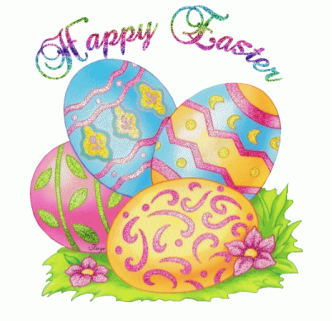Позакласний захід з англійської мови на тему "Spring is coming"
Цікавий матеріал за участю учнів молодшої, середньої та старшої ланки занурить вас у різнобарвне вивчення англійської мови.Тут можна знайти різні форми роботи, які допоможуть повноцінному навчанню англійської мови.
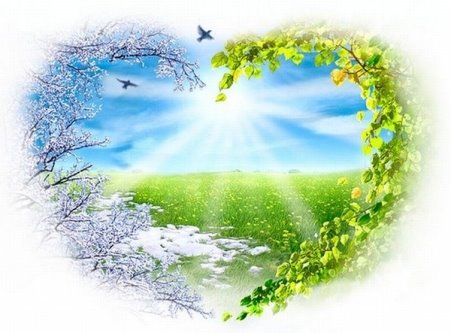
Конспект позакласного заходу
з англійської мови
«Spring is coming»
 Підготувала вчителька
Підготувала вчителька
англійської мови
НВК «ЗОШ I-III ст. №1 - гімназія»
м. Хоростків Гусятинський район Тернопільська обл
Пшик Тетяна Євгеніївна
![]()
Spring is coming
P1: Good morning, dear guests, teachers, pupils and friends. It is a very unusual day today. We are having a party, we are very glad to see you here because spring is coming and everybody is happy to welcome it.
P2: I shall open wide my window,
Letting in the laughing breeze,
That is telling happy stories
To the fields and to the trees.
For the spring, the spring is coming.
Its ‘good – bye’ to all the snow.
Yes, I know it, for the swallows
Have come back to tell me so.
P3: The sunshine gleams so bright and warm,
The sky is blue and clear.
I run outdoors without a coat,
And spring is almost here.
Then before I know it,
Small clouds have blown together,
Till the sun just can’t get through them,
And again, it’s mitten weather.
P4: In the spring, in the spring.
Sweet and fresh is everything.
Winter winds are no more blowing,
In the fields all is growing.
In the spring, in the spring
Sweet and fresh is everything.
P5: Yes, it’s true. Spring is a wonderful season, when everything begins to grow, when it is getting warmer and warmer. Let’s say “good – bye” to winter. Let’s say: “Welcome, spring!” when:
The sun is shining,
The flowers are blooming,
The sky is blue. (All together)
The rains are few.
All together: Welcome, spring! (3 times)
Spring: You’ve called me. And here I am. I have come. I hear the birds that sing from bush to bush.
The linnet and the little wren,
The blackbird and the thrush.
My dear! I am so glad to see you in this hall.
I am spring. People call me the season of love, hope and happiness. I am so pretty and young. When sending me to the Earth the Sun made me a present of eternal youth. When I come, flowers begin to grow, green leaves appear on the trees, nature awakens from its long winter sleep. The ground is covered with emerald – green grass and the first flowers. The air is fresh, the sky is blue and cloudless, and the sun shines brightly. The trees are in full blossom. Birds come from the South and begin to build their nests. Then they feed their little ones. The nightingale begins to sing its lovely songs and sweet melodies may be heard from every wood and park. The days are warm and everything is full of life and joy. Children help their fathers and mothers to plant trees, vegetables and flowers. First May rains wash the earth and everything looks so bright.
The flowers are blooming everywhere,
On every hill and dale,
And oh! How beautiful they are,
How sweetly they smell!
We are having the flower meeting. Meet our flowers.
(The Queen of flowers is sitting on her throne at one side. The flowers come up to her one by one and present themselves).
Queen of flowers: My dear flowers! Spring is here. When are you coming to the gardens and fields?
Flowers: We are coming! We are coming!
Queen of flowers: Who is coming first?
Snowdrops: I am a nice little flower in a white dress. I have no smell.
Queen of flowers: Your name will be Snowdrop. You will be the first flower in spring. People will see you on the places where the snow melts into water in the sun. They will like you very much.
(The Snowdrop bows and stands at one side of the throne).
Violet: I am a pretty flower
You will find in May
I blossom in woods
And make them look gay.
I am a spring flower too. I don’t like snow. I like warm days. My dress is violet. I am very nice, as you see.
Queen of flowers: Your name is Violet. You will come after the Snowdrop, a little later, when there is no snow in the fields, the days are longer and it’s warmer.
(The Violet bows and stands at the other side of the throne).
Lily-of-the Valley: My name is Lily-of-the Valley. I think you all like my small white bells.
(It bows to the Queen and stands next to the Snowdrop).
Daffodil: I come next. I am yellow like the sun. I like to dance in the wind. My name is Daffodil.
(It bows to the Queen and stands next to the Violet).
Bluebell: Blue as the sky,
In summer I grow
I am a sweet flower,
As you all know.
Queen of flowers: Oh, I know, your name will be Bluebell. You must come in summer, when it is warm and the sun shines all day long. People will see you in the grass. You will make the fields beautiful.
(It bows and stands next to the Lily-of-the-Valley).
Corn-Flower: My colour is blue too. I make the fields beautiful, but I make the harvest not very rich.
Queen of flowers: Your name, my beautiful one, will be Corn – Flower. People will see you in the fields all the summer.
(The Corn – Flower bows and steps aside).
Sunflower: Look at me, please. I am like the golden Sun. You can find me in the fields.
Queen of flowers: Yes, you look like the sun, so your name will be Sunflower. People will see you in the country in August, and you’ll look at the sun every day.
(The Sunflower bows and goes to one side of the throne).
Poppy: I come in summer too. My name is Poppy. I have a fine red dress.
(It bows and steps aside).
Rose: In summer – time I come
Lovely and fair,
To bloom in the gardens
And perfume the air.
All of you know me very well and like my sweet smell. I am Rose. I have a lot of pretty dresses – yellow, pink, white. I come when the Sun is hot.
(It bows and steps aside).
Queen of flowers: (Stands up and goes to the middle of the room).
Well, my dear flowers. You know that you are spring and summer flowers. People can see you in the gardens and fields. Now let’s sing and dance. It is spring now and summer will come here soon and you must be ready to come together with them.
(All the flowers make a ring, all are singing the song “’Tis Springtime”).
‘Tis springtime, ‘tis springtime,
Cold winter is past,
Warm breezes are blowing,
And spring’s here at last.
The birds are returning.
Their songs you can hear,
And meadows are smiling
With spring flowers here.
Spring: It’s time to call my brothers. They always help me in everything. This is the month of the last frost of melting snow, of the first buds, of the earliest spring flowers, of the migratory birds.
March: Hello! I am March. According to the Gregorian calendar, I am the third month of the year. According to the early Roman calendar, I was the first month and was called Martius. The ancient Romans later made January 1 the beginning of the year, and I became the third month on the calendar. I have always had 31 days. My name honours Mars, the Roman God of war.
There are many superstitions about me. We often hear that “March comes in like a lion and goes out like a lamb”. This means that my first day is often stormy, and the last day is mild and warm. Another saying is, “April borrowed from March three days, and they were ill”. This refers to the first three days of April, which are generally rough and blustery like me. A third saying calls the first three days of mine “blind days” because they are “unlucky”. If rain falls on these days, farmers supposedly will have poor harvests. My weather is very changeable, windy and bad.
I bring breezes long and shrill
To stir the dancing daffodil.
Grey winter’s gone away,
The world looks new and gay.
Dance “Spring cocktail” is my present for you.
Spring: This is the month of heavy spring rains, of the return of birds, of new grass and new leaves, of spring flowers.
April: I am the fourth month of the year in the Gregorian Calendar and one of four with the length of 30 days. I’m not named after a god or goddess. I am more like the angel of Spring. I am a kind and beautiful month. The soft showers make the flowers open and the trees blossom. And this time of the year, the Romans exclaimed “Omnia aperit”. It means “April opens all things”. After the long winter they say Nature coming back to life. So they called me “April or the opener”.
I was originally the second month of the Romancalendar, before January and February were added by King Numa Pompilius about 700 BC. It became the fourth month of the calendar year about 450 BC, when it also was given 29 days. The Julian calendar reform of 46 BC gave April 30 days, effective in 45 BC. I begin on the same day of the week as July every year, and as January in leap years.
I bring the primrose sweet
You see daisies at your feet.
April weather, rain and sunshine both together.
My present for you is a dance.
Spring: This is the month of blossoming fruit trees, of late flowers, of singing birds.
May: My name is May. I’m named after Maia – the mythological goddess of the fields. The grass is green and the trees are blooming. Cherry – trees are especially beautiful when they are in blossom. When I come, it is usually warm and children don’t want to stay at home, but like to play out – of – doors. You can hear birds’ songs which are very nice. I am the fifth month of the year in the Gregorian calendar and one of seven Gregorian months with the length of 31 days.
I have some other names: In Finnish, I am called toukokuu, meaning “month of sowing”. In Slovene, I am called velike traven, which means the month of high grass. In Xhosa, I am known as ngekalanzibe meaning “month of Canopus”. I am also the final month of the year by the traditional Xhosa calendar.
There are some interesting facts about me:
- Within any calendar year, no other month begins on the same day of the week as May.
- I am the only month in which a President of the United States has not died.
I bring flowers, joy and grass,
And many sunny days for us.
In the merry month of May
All the little birds are gay,
All the little flowers swell,
Children are happy, they laugh, sing and say:
“Welcome, welcome, merry May!
In May we celebrate a lot of holidays. Victory Day is one of them. Song “Katiusha” is my present for you. It is devoted to this holiday.
Katiusha
Music by M. Blanter
Words by M. Matusovskyi
Translated by Walter May
Apple trees and pear trees were blooming,
Mists were floating on the river, deep,
And Katiusha’s gone out in the gloaming
On the river bank so high and deep. (twice)
She went out and sang so sweet and clearly,
Of the soft grey eagle of the steppes,
Of the one, the lad she loves so dearly,
Of the one whose letters still she keeps. (twice)
Song, oh maiden song above the water,
Fly forward the sunset bright and fair,
To the soldier on the distant border,
Bring Katiusha’s greetings in the air. (twice)
May he think of her, so young and lovely,
May he hear her sing her song above,
May he guard and keep his native country
As Katiusha guards and keeps her love. (twice)
Apple trees and pear trees are were blooming,
Mists were floating on the river, deep,
And Katiusha’s gone out in the gloaming,
On the river bank so high and high and steep. (twice)
Spring: Thank you kindly, my dear brothers. You have worked a lot. I am, as any other season, full of holidays. People like my holidays and celebrate them gladly. One of my funny holidays is April Fool’s Day.
The first of April, some do say
Is set apart for All Fool’s Day;
But why the people call it so
Nor I, nor they themselves, do know,
But on this day are people sent
On purpose for pure merriment.
Poor Robin’s Almanac (1790)
Spring: It is generally accepted that the All Fool’s Day tradition began in France during the 16th century, when the beginning of the New Year was observed on April 1 and was celebrated in much the same way as New Year is today – with parties and dancing late into the night. At that time, the festivities ran for a week beginning on March 25, and included the exchanging of gift. In 1582, however, during the reign of King Charles IX, Pope Gregory introduced a revised calendar for the Christian world wherein the New Year fell on January 1. Since it took some time for many people to ever hear word of the change and since others obstinately refused to accept such a reform or simply forgot New Year’s Day continued to be celebrated on the first day of April in many areas.
As for April Fool’s Day, it is celebrated in different countries. Every country has its own traditions of celebrating this holiday. Some countries have come here to tell you about it.
France: In modern day France, the first day of April is called "Poisson d'Avril" or "April Fish ". An April fish is a young fish and thus, one which is easily caught. French children fool friends by taping a paper fish to the victim's back and, when the "fool" discovers this trick, yelling: "Poisson d'Avril!" Traditionally, French pranks must include a fish (or at least a vague reference to it within the joke) and it is not unusual for friends to be presented with dainty presents fashioned in the form of a small fish on All Fool's Day.
Scotland: In Scotland, where the tradition is celebrated over the course of forty-eight hours, April Fool's Day is also known as "April Gowk," "Gowkie Day "or "Hunt the Gowk ". "Gowk" is Scottish for "cuckoo" (an emblem of simpletons) and thus, a "gowk" is the butt of any practical joke. The second day of the Scottish April Fool's custom is devoted exclusively to pranks involving the posterior region of the body. This is known as "Tally Day" and the origin of the ever-popular "Kick Me" sign is likely traceable to this observance.
England: In England, where tricks and pranks are only permissible during the morning hours of All Fool's Day, the victim is known as a "noodle". In the Cornwall region of England, an April Fool is also known as a "gowk" (as in Scotland) or a "guckaw". If a child is successful in playing a trick on another, then it is usual for the perpetrator to taunt: "Fool, fool, the guckaw!" On the other hand, if the victim fails to fall for the trick, then the retort is: "The gowk and the titlene sit on a tree. You're a gowk as well as me!" A "titlene" is a hedge sparrow. In the County of Cheshire in England, an April Fool is an "April Gawby," sometimes referred to as a "gobby" or "gob," while in Devon, unlike the remainder of England, pranks are allowed in the afternoon and the custom of pinning an inscription such as "Please kick me" to the j coat-tails of an unsuspecting victim is popular. In Devon, however, this is known as "Tail-Pipe Day". In the Lake District area of England, an April Fool is an "April 1 Noddy" and at the end of the day, it is customary to chant: "April Noddy's past and gone...You're the fool an' I'm none".
Mexico: In Mexico, April Fool's Day is observed on December 28. Originally a sad remembrance of the slaughter of the Innocents by King Herod, it eventually evolved into a much lighter commemoration involving pranks and trickery.
Potugal: In Portugal, April Fool's Day is celebrated on the Sunday and Monday prior to the Lenten Season, with the traditional trick being to throw flour at one's friends.
France: Small April sobbed, I'm going to cry,
Please give me a cloud to wipe my eye;
Then April Fool, she laughed instead
And smiled a rainbow overhead.
Scotland: Sir Winston Churchill said, “The greatest lesson in life is to know that even fools are right sometimes”.
Mexico: Jewish Proverb says, “Don't approach a goat from the front, a horse from the back, or a fool from any side”.
Portugal: “Wise men talk because they have something to say; fools talk because they have to say something”, said Plato.
P: You are welcome to the restaurant.
Dialogue “At the restaurant”
Characters: the Man
The Waiter
A man is sitting at a small table. A waiter is sitting on a chair farther off. He is dreamy and is singing a song.
Man: Waiter!
Waiter(coming up to the man): Yes, sir, what can I do for you?
Man: Please bring me a plate of soup.
Waiter: What kind of soup?
Man: Any kind of soup, but be quick, I am in a hurry.
Waiter: All right, sir, just a minute. (Cries to the cook). One soup, quickly! (Sit down on his chair, goes on singing).
Man: Please, I want my soup.
Waiter: Oh, yes, certainly. At once, sir, once!
(He goes to the kitchen, brings a plate of soup and puts it on the table in front of the man. Then he goes to his place and goes on singing.)
Man: Waiter!
Waiter(coming up to him): Yes, sir?
Man: I can’t eat the soup.
Waiter: But it is a very good soup. Hot and thick. Well, I’ll bring you another kind of soup. Just a minute!
(He takes the plate, goes away and brings another one. Then he sings again.)
Man: Waiter!
Waiter: (coming up to him): Yes, sir?
Man: I can’t eat the soup.
Waiter: But our cook is the best cook in London, and he is especially good at soups. But if you don’t like this soup, I can bring you another kind.
Man(angrily): Leave the soup here, and bring me a spoon. I have no spoon!
Waiter: Oh, what a fool I am!
Easter: Good afternoon, dear guests. I am another spring holiday. My name is Easter. I am the greatest religious holiday. I am always on Sunday between April 4 and May 8 and I am a feast of Christ’s Resurrection. I am the feast for children and grown – ups, the feast of joy and happiness.
I begin with High Mass and the Easter matins, during which paskas, pysankas, krashankas, cheese, sausage, smoked meat, horse – radish, butter are blessed in the churches. I am a very happy day. Flowers, chickens, eggs are the signs of Easter.
Egg is a symbol of Easter. It looks like a rock. But when it hatches, a wonderful little chick appears. It reminds us that new life can come from unexpected places. Children like playing on this day.
Eater Adventure (the play)
( There is a big basket on the stage. It is a holiday basket. It is full of children. They symbolize some kinds of holiday food (pysankas, paskas, sausage). They are wearing special costumes).
|
Girl: I have a basket, it’s for Easter, What’s in the basket, please, tell me. Paskas, babka, cheese and butter, Ham, horse – radish and kovbaska. With some onions and beet radish, A pilled egg and coloured ones And an Easter egg. We are going to light a candle, Go to church and have it blessed. And together we’ll all sign out: “Christ has risen!”
|
|
(Children in the basket answer: “Indeed He has risen!” They are dancing.)
Spring: Children like Easter games. Let’s play.
1. Divide into race teams and give each person a spoon with an egg in it. Each player must carry the egg to a set point and back, and pass it on to the next person’s spoon without touching the egg. If the egg is dropped, it must be replaced before the player races on. The first team to finish wins.
2. Let’s players stand in a circle and have one egg for every three of them. Give one egg a special colour or marking . Play music while the eggs are passed around the circle. When the music stops, the person holding the special egg is out. Continue until only one person is left.
Thank you pupils.
We celebrate Shakespeare’s birthday in April. Meet my helpers.
Host: Dear friends! We are glad to introduce the greatest playwright and poet W. Shakespeare to you.
Hostess: The name of W. Shakespeare is known all over the world. The last half of the 16th and the beginning of the 17th centuries are known as the Golden Age of the English literature. It was the time of the English Renaissance, and sometimes it is called ‘The Age of Shakespeare’.
Host: The first facts of Shakespeare’s biography are that he was born on April 23, 1564 in Stratford – upon – Avon.

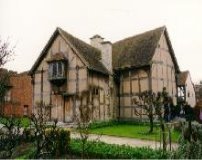
“Shakespeare”: And now it’s my turn to speak. Stratford – upon – Avon is a marvelous place: I was born there and I went back there to die. It was well – known for its markets and fairs. The town stands on the Avon, a pretty river with grass and trees on both banks.
Hostess: So your childhood was rather happy, wasn’t it?
“Shakespeare”: Yes, it was. And it was due to my parents. Let me introduce my father.
“John Shakespeare”: My name is John Shakespeare. I am a dealer in corn, meat, wood and leather. I am a man of some importance in Stratford, next to the mayor. I am married. Meet my wife Mary Arder.
( Mary is the youngest daughter of a rich farmer. She is a woman of lovely character).
“Mary”: Thank you, for your kind words, but we are here not to speak about ourselves. I am going to talk about William. I am proud to have such a clever son. He was always good at learning. He attended grammar school at Stratford, he learned to read and write there, and it was not an easy task at that time, because reading was taught as learning by heart. And school teachers kept discipline according to the proverb: “Spare the rod and you spoil the child”. Besides, he had a kind of private lessons at home. An Italian who lived in our house taught him Latin and poetry of many foreign authors.
Hostess (to Shakespeare): So, you were learning all the time at school and at home. Wasn’t your boyhood dull and boring?
“Shakespeare”: Not at all. My childhood was full of fishing and hunting. Besides I was still a boy when I began to write plays and poems. I devoted my first verses to my beloved Anne Hathaway. Let me introduce my wife to you.
“Anne”: I can’t say that my marriage was a happy one and how could it be when Willie left me, our 2 daughters and a son, and went to London?
“Shakespeare”: I had to go there because there was no work for me in Stratford. That’s why I decided to go to London and try myself first as an actor and later as a playwright.
Host: And you were right because you created a lot of literary works there. By the way, do you know how many sonnets and plays Shakespeare created?
Hostess: Yes, you are right. W. Shakespeare created 2 poems, 154 sonnets and 37 plays.
Spring: Thank you.
Dear guests, I want to suggest you a kind of competition about Shakespeare’s plays.
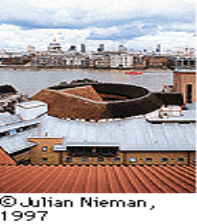
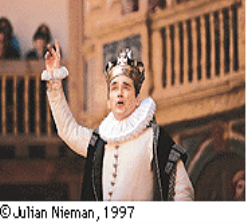
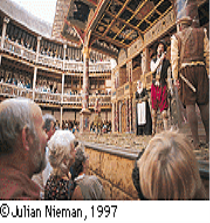
- What main hero lost his father, who was killed by his uncle? (Hamlet, Othello, King Lear)
- What was the name of the girl who fell in love with a man in a mask? (Juliet, Ophelia, Cleopatra)
- What king had 3 daughters? (King Lear, Claudius, Jaques)
- Who said “To be or not to be – that is the question”? (Hamlet, Antony, Yago)
- Who said “I kissed you before I killed”? (Othello, King Lear, Julius Caesar)
- Whose last words were:”Thus with a kiss I die”? (Romeo’s, Richard’s Tybalt’s)
- Whose words are these:”Alas poor Yorick”? (Hamlet’s, Mercucio’s, Othello’s)
- Who said: “How sharper than a serpent’s tooth it is to have a thankless child”?
( King Lear, Richard III, Julius Caesar)
- What was the name of Hamlet’s father in the play by W. Shakespeare? ( Hamlet, Claudius, Richard )
- What plays by W. Shakespeare do you know in which a ghost appears? ( “As you like it”, “Romeo and Juliet”, “king Lear”), (In “Hamlet” there is a ghost of Hamlet’s father, in “Julius Caesar” the ghost of Caesar, in “Macbeth”the ghost of Banguo), (“Othello”, “Twelfth Night”, “Antony and Cleopatra”)
Thank you for your answers.
Host: We know that W. Shakespeare is also a famous poet. He wrote a lot of sonnets which are popular and loved by our pupils. Let’s listen to some of them.
Sonnet 28
P1: Shall I compare thee to a summer’s day?
Thou art more lovely and more temperate.
Rough winds do snake the darling buds of May,
And summer’s lease hath all too short a date:
Sometime too hot the eye of heaven shines,
And often is his gold complexion dimm’d;
And every fair from fair sometime declines
By chance or nature’s changing course untrimm’d;
But thy eternal summer shall not fade
Nor shall Death brag thou wander’st in his shade,
When in eternal lines to time thou growest;
So long as men can breathe or eyes can see,
So long lives this gives life to thee.
|
Sonnet 130 P2: My mistress’ eyes are nothing like the sun; Coral is far more red than her lips’ red; If snow be white why then her breasts are dun; If hairs be wires, black wires grow on her head. I have seen roses damask, red and white, But no such roses see I in her cheeks; And in some perfumes is there more delight Than in the breath that from my mistress reeks I love to hear her speak, yet well I know That music hath a far more pleasing sound; I grant I never saw a goddess go; My mistress, when she walks, treads on the ground: And yet, by heaven, I think my love as rare As any she belied with false compare.
|
|
Hostess: Our pupils have prepared some dramatizations of Shakespeare’s plays.
ROMEO AND JULIET
Romeo: See, how she leans her cheeks upon her hands!
O, that I were a glove upon that hand,
That I might touch that cheek!
Juliet: Ay, me!
Romeo: She speaks.
O, speak again, bright angel:
Juliet: O, Romeo, Deny thy father and refuse thy name.
And I'll no longer be a Capulet.
Romeo: Shall I hear more or shall I speak at this?
Juliet: What's Montaque? It is nor hand, nor foot, nor arm, nor face, nor any other part Belonging to a man. O, be some other name: What's in a name? That which we call a rose. Be any other name would smell as sweet.
Romeo: Call me but love, and I'll be new baptized. Henceforth I never will be Romeo. My name is hateful to myself. Because it is an enemy to thee.
OTHELLO
Desdemona: Who's there?
Othello: It's me. Have you prayed tonight, Desdemona?
Desdemona: Ay, my Lord. What's the matter?
Othello: That handkerchief which I so loved and gave thee, у u gave it to Cassio.
Desdemona: No, by my life and soul.
Othello: I would not kill thy soul.
Desdemona: Talk you of killing?
Othello: Ay, I do. O, Lord, have mercy on me. I say amen.
Desdemona: And have you mercy, too: I never did offend
you in my life, never loved Cassio. I never gave him token.
Othello: By heaven, I saw my handkerchief in his hand.
Desdemona: I never gave it him. Let him confess the truth.
HAMLET
Ophelia: My Lord, I have remembrances of yours. I pray you. Hamlet: Are you fair? Ophelia: What means your lordship?
Hamlet: That if you be honest and fair, your honesty should admit no discourse to your beauty.
Ophelia: Could beauty, my lord, have better commerce thai with honesty.
Hamlet: Ay, truly, for the power of beauty will sooner transform honesty from what it is to a bawd than the force of honesty can translate beauty into his likeness. I did love you once.
Ophelia: Indeed, my lord, you made me believe so.
Hostess: The last few years W. Shakespeare spent at Stratford. He died on his 52nd birthday. His tomb is in old Parish Church. Four lines are inscribed on it. Do you remember them?
“Shakespeare’s: Good friends, for Jesus sake forbear
To dig the dust inclosed here,
Blessed be he, that spares these stones,
And cursed be he that moves my bones.
Spring: One of the most famous spring holiday is Mothering Sunday. It also has its history and traditions.
Girl1: Dear guests! I’d like to introduce you this holiday. Mothering Sunday in the UK is the equivalent of Mothering Sunday in other countries. It is celebrated on the second Sunday in May. Mothering Sunday is a time when children pay respect to their Mothers. Children often give their Mothers a gift and a card. What is the history of Mothering Sunday? Young British maids and servants could visit their family only once a year. This was usually on Mothering Sunday. The housekeeper or cook allowed the maids to bake a cake to take home for their mothers. Flowers were traditional, as the young girls and boys could gather them on this way home. Mothering Sunday is also sometimes known as Simnel Sunday because of the tradition of baking Simnel cakes. The Simnel cake is a fruit cake decorated with 11 marzipan balls on top.
|
Girl2: Hail Mary Hail Mary, full of grace, the Lord is with thee! Blessed art thou among women, And blessed is the fruit of thy womb, Jesus. Holy Mary, Mother of God, pray for us sinners, Now and at the hour of our death. Amen. |
|
(Song “A Mother’s Prayer”(Celin Dion))
I pray you'll be my eyes
And watch her where she goes
And help her to be wise
Help me to let go
Every mother's prayer
Every child knows
Lead her to a place
Guide her with your grace
To a place where she'll be safe
I pray she finds your light
And holds it in her heart
As darkness falls each night
Remind her where you are
Every mother's prayer
Every child knows
Need to find a place
Guide her with your grace
Give her faith so she'll be safe
Lead her to a place
Guide her with your grace
To a place where she'll be safe
Spring: Dear guests, teachers, pupils, our party is coming to the end. Thank you for your attention. Good-bye.
Додаток № 1
RHYMES AND QUOTATIONS
Small April sobbed, I'm going to cry,
Please give me a cloud to wipe my eye;
Then April Fool, she laughed instead
And smiled a rainbow overhead.
Anonymous
If it thunders on All Fool's Day,
Expect good crops of com and hay.
Anonymous
The greatest lesson in life is to know that even fools are right sometimes.
Sir Winston Churchill
A fellow who is always declaring he's no fool, usually has his suspicions.
Anonymous
The world is full of fools; and he who would not wish to see one, must not only shut himself up alone, but must also break his looking-glass.
Bioleau
Every fool finds a greater one to admire them.
Bioleau
A fool may be known by six things: anger without cause; speech without profit; change without progress; inquiry without object; putting trust in a stranger; and mistaking foes for friends.
Arabian Proverb
What a fool does in the end, the wise do in the beginning.
Spanish Proverb
Don't approach a goat from the front, a horse from the back, or a fool from any side.
Jewish Proverb
A mother takes twenty years to make a man of her boy, and another woman makes a fool of him in twenty minutes.
Robert Frost
Fortune, seeing that she could not make fools wise, has made them lucky.
Michel de Montaigne
Take all the fools out of this world and there wouldn't be any fun living in it, or profit.
Josh Billings
Wise men learn more from fools than fools from the wise.
Cato the Elder
A wise man gets more use from his enemies than a fool from his friends.
Balthasar Gracian
Wise men talk because they have something to say; fools talk because they have to say something.
Plato
1


про публікацію авторської розробки
Додати розробку

